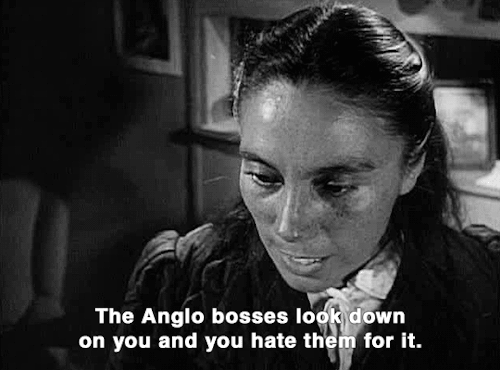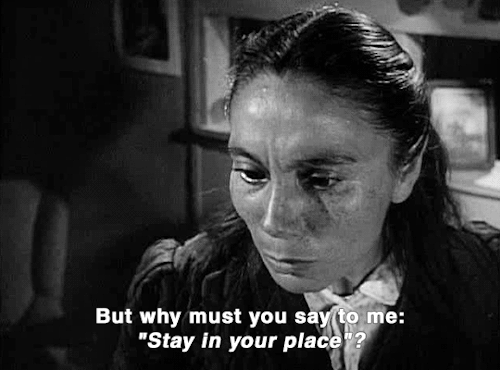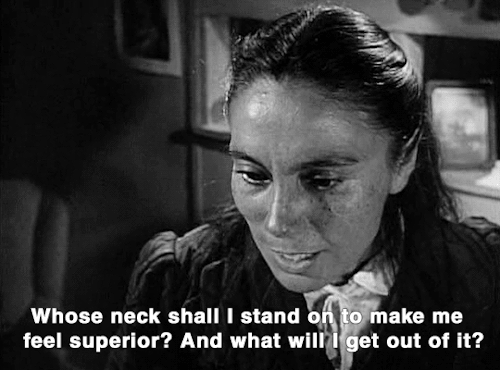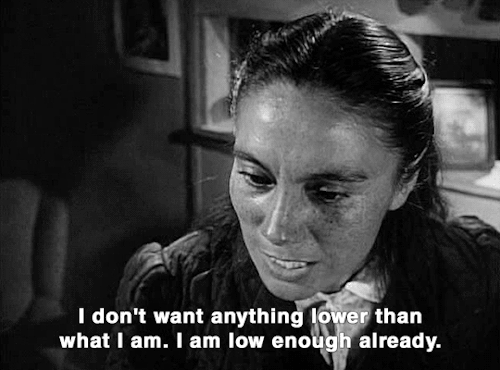I Miss Jude.
I miss Jude.
Sometimes I don’t know what I really mean by that. At least right now what I mean is that I miss reading his dialogue. A good amount of the book is about his thoughts and actions. But his conversations —his innocent questions, his sarcastic humor, his petulant stubbornness, his lengthy discussions about law and math — are precious to me. I miss reading him speak.
Some days I miss his routines, other days I miss his introspection. Today I miss his voice, even though I’ve never heard it before.
More Posts from Sayaosi and Others
This is for all the people who are struggling but just keep getting up and trying. The ones who keep showing up, day after day, even when they don’t want to. The ones who stare at the fridge, willing themselves to cook food even though they want to skip. The ones who get up and get water even when they’d prefer to ignore their own needs. The ones who keep on breathing, even when they don’t really want to, because they trust the day will come when the tightness around their hearts has eased.
this is for everyone, because everyone here today has kept on being. even on the days when they didn’t particularly want to. the hard days and the sad ones and the hurt ones, too. You are still here, trying, and this is a moment of recognition for all the beautiful work you’ve done.
Keep going, love. The light comes back.








Salt of the Earth (1954), dir. Herbert J. Biberman










Nanami deserved to be happy...🩵🪽









Carmy vs Syd The Bear, Season 1-3
Queerness, Gentrification and Cultural Genocide in the film La Mission
This is an essay I wrote as part of my pursuit of an Ethnic Studies degree at Cal State East Bay during the Fall Quarter 2017. This will be part of a series of essay posts from my classes at the end of my school quarters. This and all of my essays were written under my legal name, Dennis Camargo.
In the film La Mission, the audience is introduced to Che, a former prisoner and alcoholic, and his son Jes, a student just about to graduate high school. The plot of the film focuses on the tumultuous relationship between Che and Jes after Jes was inadvertently outed as a gay man by his father stumbling across photos of Jes in a gay club. In the film there is an underlying tone of Che interpreting male homosexuality as a force of consumerism and gentrification in La Mission, the area of San Francisco where the film takes place. Che is unable to reconcile his son’s queerness, therefore branding his son as a race trader and being complicit in the cultural genocide of a historically Mexican district of San Francisco.
Very early in the film, the audience is met with Che’s fears of La Mission falling victim to gentrification like many other parts of San Francisco. Che confronts his neighbor Lena, who has filed a complaint against Che with their landlord for blocking the sidewalk with his lowrider. The audience sees Che’s defensiveness against this complaint as encroachment of seemingly God-given right as a Mexican man to exert his dominance and symbols of masculinity in his Azatlan, the mythical homeland of Aztecs and by extension Mexican culture. He states “…after all you hipster types are tired of slummin’ it, I’m still going to be here,” to Lena, a black woman who personifies a typical hipster/gentrifier complete with fixed gear bicycle and an interest in New Age beliefs (00:10:15). Despite her race, her hipster interests are typified as white behavior and therefore is an extension of the cultural genocide of La Mission district. While her lifestyle is not necessarily queer, it is accepting of queerness which opens the door for more white culture to smother the hypermasculine, hyper heterosexual Chicano culture of La Mission.
Che has a very complex interpretation of his son’s queerness because of his history as a convict, his addiction to alcohol and the association of gay culture with alcohol, whiteness and consumerism. Che’s few associations with gayness are exemplified with the line “Is that why he’s manhandling you like you’re some Mexican bitch?,” (00:27:05) when he confronts Jes with the photographic evidence of is encounter with his white boyfriend. Another instance is an ad for here!, a gay-oriented on demand television channel being advertised on the busses he drives (00:40:26). These two instances can be interpreted as colonial, capitalist gentrifiers of his Azatlan, making Jes la Malinche, a historical figure vilified by Mexican people for selling out the Native Mexicans to the Spanish (Garsd). On a very tangential note, his association with queerness and clubbing, therefore alcohol use, can be seen as a white drug adulterating a perfect Aztec life, as there tremendous pride in Aztec identity among those who pride themselves as Chicano. This adulteration can be tied to the trope of Native Americans struggling with alcohol abuse.
Conclusively, while Che’s interpretation of queerness and white hipsterdom gentrifying traditional black and brown neighborhoods is not necessarily incorrect, he fails to see the nuances of being queer. Queers of color can be equally weary of gentrification and cultural genocide of historically black and brown areas and are willing to protect la raza from falling victim to capitalism. Understanding of the intersectionality of being brown and queer will help in the effort against gentrification.
Citations
La Mission, www.amazon.com/Mission-Benjamin-Bratt/dp/B003ZZ4H6K/ ref=sr_1_1? ie=UTF8&qid=1509596248&sr=8-1&keywords=la%2Bmission&dpID=513tWYMpb7L&preST=_SY300_QL70_&dpSrc=srch.
Garsd, Jasmine. “Despite Similarities, Pocahontas Gets Love, Malinche Gets Hate. Why?” NPR, NPR, 25 Nov. 2015, www.npr.org/sections/goatsandsoda/2015/11/25/457256340/despite-similarities-pocahontas-gets-love-malinche-gets-hate-why.


Fallen Angels (1995) dir. Wong Kar-wai





a man of culture 🫖
you are not unloveable you are just sad and a little bit angry. let’s go have some soup







LITTLE FOREST (2018), dir Yim Soon-rye

-
 creepy-like-heaven liked this · 1 week ago
creepy-like-heaven liked this · 1 week ago -
 uhnoimsorry reblogged this · 1 week ago
uhnoimsorry reblogged this · 1 week ago -
 uhnoimsorry liked this · 1 week ago
uhnoimsorry liked this · 1 week ago -
 lightpinkgoat liked this · 4 weeks ago
lightpinkgoat liked this · 4 weeks ago -
 bees-fart-too liked this · 4 weeks ago
bees-fart-too liked this · 4 weeks ago -
 luckynoon liked this · 1 month ago
luckynoon liked this · 1 month ago -
 ladychucha liked this · 1 month ago
ladychucha liked this · 1 month ago -
 anytim3youwant liked this · 1 month ago
anytim3youwant liked this · 1 month ago -
 snufkinknows liked this · 1 month ago
snufkinknows liked this · 1 month ago -
 shine-breathe-think liked this · 1 month ago
shine-breathe-think liked this · 1 month ago -
 anetka979 liked this · 1 month ago
anetka979 liked this · 1 month ago -
 anepitomeofdisaster liked this · 1 month ago
anepitomeofdisaster liked this · 1 month ago -
 distant-and-remote liked this · 1 month ago
distant-and-remote liked this · 1 month ago -
 kind-404 liked this · 1 month ago
kind-404 liked this · 1 month ago -
 visionsofbodies liked this · 2 months ago
visionsofbodies liked this · 2 months ago -
 llcsecret liked this · 2 months ago
llcsecret liked this · 2 months ago -
 thomasbright liked this · 2 months ago
thomasbright liked this · 2 months ago -
 marzintears liked this · 2 months ago
marzintears liked this · 2 months ago -
 academic-society liked this · 3 months ago
academic-society liked this · 3 months ago -
 toji-is-my-wife liked this · 3 months ago
toji-is-my-wife liked this · 3 months ago -
 linalovesoukokuuuu liked this · 3 months ago
linalovesoukokuuuu liked this · 3 months ago -
 queenbeeok-blog liked this · 3 months ago
queenbeeok-blog liked this · 3 months ago -
 infinite-of-sky liked this · 3 months ago
infinite-of-sky liked this · 3 months ago -
 peonysun liked this · 3 months ago
peonysun liked this · 3 months ago -
 delicatefadedgaze liked this · 4 months ago
delicatefadedgaze liked this · 4 months ago -
 samwilsonswife reblogged this · 4 months ago
samwilsonswife reblogged this · 4 months ago -
 samwilsonswife liked this · 4 months ago
samwilsonswife liked this · 4 months ago -
 titaniaeridanus liked this · 4 months ago
titaniaeridanus liked this · 4 months ago -
 thejordanriver liked this · 4 months ago
thejordanriver liked this · 4 months ago -
 adhamabbas liked this · 4 months ago
adhamabbas liked this · 4 months ago -
 peach-22 reblogged this · 4 months ago
peach-22 reblogged this · 4 months ago -
 ghoulwidow liked this · 4 months ago
ghoulwidow liked this · 4 months ago -
 lina-sng reblogged this · 4 months ago
lina-sng reblogged this · 4 months ago -
 lina-sng liked this · 4 months ago
lina-sng liked this · 4 months ago -
 girlbossloureed liked this · 4 months ago
girlbossloureed liked this · 4 months ago -
 wisethingpolice liked this · 4 months ago
wisethingpolice liked this · 4 months ago -
 winterfliee liked this · 4 months ago
winterfliee liked this · 4 months ago -
 dahma-lz liked this · 4 months ago
dahma-lz liked this · 4 months ago -
 wastingstarsss liked this · 4 months ago
wastingstarsss liked this · 4 months ago -
 pistachoz liked this · 4 months ago
pistachoz liked this · 4 months ago -
 telephonedear reblogged this · 5 months ago
telephonedear reblogged this · 5 months ago -
 telephonedear liked this · 5 months ago
telephonedear liked this · 5 months ago -
 nadjasolace liked this · 5 months ago
nadjasolace liked this · 5 months ago -
 callmerina liked this · 5 months ago
callmerina liked this · 5 months ago -
 burnt-tree liked this · 5 months ago
burnt-tree liked this · 5 months ago -
 rocketfrushi liked this · 5 months ago
rocketfrushi liked this · 5 months ago -
 wandawisiononly liked this · 5 months ago
wandawisiononly liked this · 5 months ago

She/her | 22 | 🩷💛🩵-💚🩶🤍🩶💚Blogging about my various interests including TV shows, film, books, video games, current events, and the occasional meme. My letterboxed: https://boxd.it/civFT
123 posts